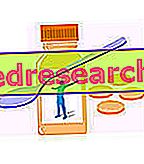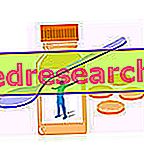Diet as a cause of Iatal Hernia
Diet seems to represent a very important element not only in the correct management of hiatal hernia, understood as the prevention of eructations and gastroesophageal reflux, but also in the origin of this widespread disease.

Since 1973, thanks to Burkitt's epidemiological studies, we know that hiatal hernia is quite rare in developing countries and even misunderstood in rural societies that have maintained a simple and traditional lifestyle.
Dietary Risk Factors
There are two factors identified as the main culprits of the greater incidence of hiatal hernia in Westerners: the reduced dietary fiber intake and the constipation that follows.
In particular, elements such as the reduced intake of fibers and liquids, the need to ignore the stimulus of evacuation, the position for some aspects unnatural assumed on the toilet compared to the physiological one (Turkish), determine an increase in the pressure inside the 'abdomen during evacuation; this increase in pressure, if perpetuated over time, would entail a progressive relaxation of the anchoring structures of the distal esophagus, favoring the ascent of the stomach through the esophageal hiatus of the diaphragm (thus causing the hiatal hernia).
Explaining the different incidence of hiatal hernia between the rural African and urban populations of Western countries simply on the dietary fiber intake, appears at least reductive. For example, even the hyperalimentation in itself, made up of frequent binge eating, abnormally dilating the walls of the stomach, can force them against the esophageal hiatus, favoring their herniation. The same goes for obesity or for the bad habit of wearing corsets or dresses that are too tight.
Finally, there is no doubt that the sedentary lifestyle is associated with a lower intestinal motility (which predisposes to constipation), but also to muscular hypotonia with reduction of elasticity and robustness even of the muscular bundles and diaphragmatic tendons.
Diet in the treatment of hiatal hernia
Although the diet can in no way promote the reabsorption of hiatal hernia, which if necessary can be done through surgery, it is certainly useful for the control of associated symptoms and complications.
Although a good percentage of patients suffering from hiatal hernia do not complain of any symptoms, observance of the right dietary and behavioral rules is important to prevent the hernia from growing in size. In this sense, the correct diet for the treatment of hiatal hernia does not differ from that seen for the correct food management of patients affected by reflux esophagitis:
- consume small and frequent meals, avoiding too elaborate and abundant meals, especially before sleeping
- wait at least two or three hours from the end of the meal before going to sleep for the night. If episodes of acid reflux occur during sleep, it is advisable to raise the mattress head to adopt a slightly elevated chest position
- associate regular physical activity with the diet, avoiding physical exertion with upside down and excessively heavy loads, which can favor the appearance and aggravation of hiatal hernia
- if overweight, adopt a hypocaloric diet that helps you reach a healthy weight
- limit the consumption of fats, especially when cooked, also in the form of added seasonings, as they increase digestion times and reduce the tone of the lower esophageal sphincter, favoring the reflux associated with the hiatal hernia
- avoid smoking, which, like fats, can reduce the sphincter tone
- prefer lean protein sources, such as fish or chicken, that seem to increase the tone of the lower esophageal sphincter, preventing acid reflux associated with hiatal hernia
- prefer healthy cooking methods, such as steamed and baked, limiting roasts, fried and grilled (to be replaced with a sober cooking on the griddle, absolutely avoiding the formation of the classic lines in correspondence of the metallic strips of the grill)
- chew slowly and swallow with the same care, if possible eat the meal in a relaxed environment
- if possible, avoid rushing back to work at the end of the meal
- do not practice intense physical activity a short distance from an important meal (granted after the afternoon snack)
- eat a big breakfast and get used to eating a little at dinner
- in case of frequent digestive problems, the basic rules of the dissociated diet can also help the patient suffering from hiatal hernia
- when you eat too much, a 30-40 minute walk at a leisurely pace, a short distance from the end of the meal, can prevent the onset of acidity and heartburn
- limit the consumption of tea, coffee and alcohol
- reduce the presence of spices such as pepper, chilli, curry and nutmeg in the diet: they could worsen gastric acidity
- follow a diet rich in dietary fiber and liquids to prevent constipation; if necessary, take laxatives, but avoid chronic use
- avoid using belts and clothes that are too tight at the waist
Example of Iatal Hernia Diet



